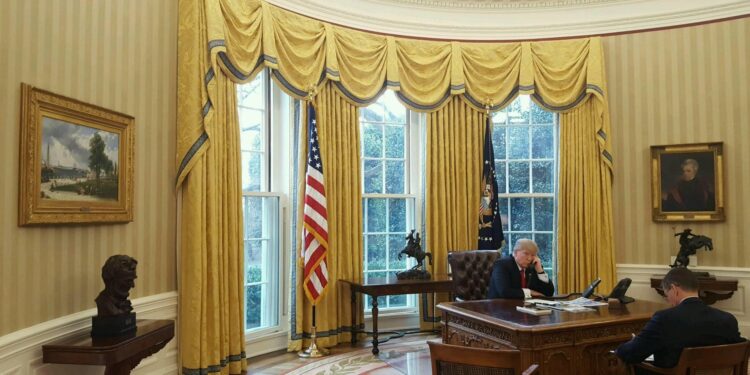
In a stunning move that caught Washington off guard, President Donald Trump spoke out against a controversial Pentagon policy that critics warn could silence journalists and threaten freedom of the press.
Speaking outside the White House on Sunday, just before departing for Charlie Kirk’s memorial service in Arizona, Trump made it clear he opposes the new restrictions, which require journalists to get pre-approval before reporting on military matters, even when the information is unclassified.
Trump Pushes Back on Pentagon Censorship
When asked directly whether the Pentagon should have the power to control what reporters are allowed to publish, Trump didn’t hesitate.
“No, I don’t think so,” the President said.“Nothing stops reporters — you know that.”
Trump’s statement immediately sent shockwaves through Washington, setting up a rare clash between the White House and the Department of Defense.
This is especially surprising given Trump’s frequent criticism of the mainstream media, making his defense of press freedoms a major turning point in the debate over government transparency.
New Pentagon Policy Sparks Bipartisan Outrage
According to a bombshell report from The Washington Post, the Pentagon’s new rule forces journalists to sign a legally binding agreement promising not to gather or publish any information that has not been officially approved for release — even if it is not classified.
The announcement was met with immediate backlash from both Republicans and Democrats, with many comparing it to tactics used by authoritarian regimes.
Rep. Don Bacon (R-NE) didn’t mince words in his response on X, formerly Twitter:
“We don’t need a bunch of state-run newspapers just echoing whatever the government says,” Bacon stated. “A truly free press keeps our nation strong — this whole thing feels like amateur hour.”
This bipartisan backlash could spell serious trouble for the Pentagon as lawmakers and watchdog groups prepare to fight the policy.
Defense Secretary Pete Hegseth Defends the Crackdown
Defense Secretary Pete Hegseth defended the new policy, framing it as a necessary step for national security and order inside one of America’s most secure facilities.
“The media doesn’t control the Pentagon — the American people do,” Hegseth declared. “Journalists can’t just wander through a secure facility anymore. Follow proper procedures and wear identification, or don’t come in at all.”
Critics, however, argue that this is a dangerous power grab that undermines accountability and gives the government unchecked control over public information.
Why This Story Matters to Every American
This fight isn’t just about journalists.
It’s about whether the U.S. government can control what information the public sees, creating what some fear could become a state-run media system.
Trump’s willingness to challenge his own administration shows how high the stakes truly are. Even the official Rapid Response 47 account, usually aligned with government messaging, shared a clip of Trump’s remarks — a rare move that signals deep division inside the administration.
For conservatives who value the First Amendment, this battle represents a critical moment for American freedom. If left unchecked, these restrictions could silence whistleblowers, suppress vital reporting, and hide the truth from the American people.
Bottom Line
Trump’s decision to stand with the press — despite his long-running feud with the mainstream media — is a bold and unexpected stance.
It sends a clear message that government overreach will not go unchallenged, even when it comes from within his own administration.
As the backlash intensifies, the Pentagon now faces bipartisan opposition, a potentially messy legal battle, and growing public outrage.
Key Takeaways for Readers
- President Trump rejects the Pentagon’s new rules restricting journalists.
- The policy could criminalize reporting on unclassified information without pre-approval.
- Bipartisan lawmakers are pushing back, warning of Soviet-style censorship.
- This fight will have lasting implications for freedom of the press and government accountability.
